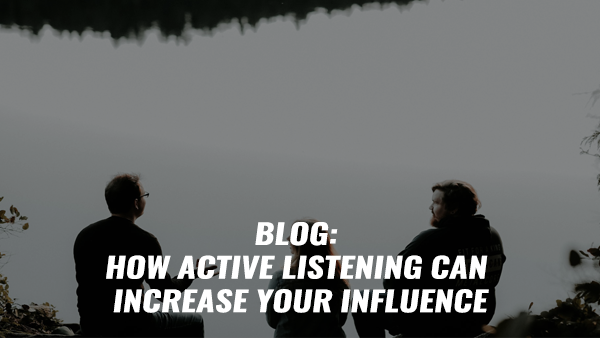Introduction
As a leader, it is your responsibility to provide guidance, direction and mentorship to those who work for you. One of the best ways to do this is through active listening. If you make an effort to listen attentively and carefully to those around you, they will feel valued and respected.
Listening is important at home, in the workplace, and in life in general.
- Listen to your family and friends, who can give you valuable feedback about what you’re doing well and where you could improve.
- Listen to colleagues at work, so that they feel heard and valued by their manager or boss–this will help create an environment where people work together effectively and efficiently.
- Listen to clients or customers when they have an issue with something you’ve provided them with (like a product or service), because this will allow both parties to figure out what went wrong so that it doesn’t happen again in future interactions between the two parties involved in this particular transaction/relationship/etcetera
Listening displays a level of trust and respect.
Listening is a sign of trust and respect. When you listen, it shows that you are interested in the other person. It also allows you to understand the other person’s perspective, which can help build rapport with them. Listening doesn’t mean that you agree with everything they say; instead, it means giving them the space to express themselves without judging or interrupting them.
Active listening allows you to remember more of what you hear.
Active listening is a skill that can be learned and is not just about hearing what the other person says, but understanding what they mean. Active listening is a way to show that you are paying attention and care about what they have to say.
When someone feels that their ideas are being heard and respected, it builds trust and rapport between two people. This helps them open up even more when talking with you in the future!
You need to listen so that they know you understand them.
Listening is an important part of any relationship, but it’s especially critical when you’re trying to build influence with someone. You need your listener to feel like their perspective has been heard and understood by you–and this is one of the best ways for them to know this (along with actively seeking out their feedback).
Listening shows that you care about the person speaking, respect their opinion and have an interest in what they have to say or feel about a topic.
Active listening makes people feel validated and confident in your opinion.
Active listening is a powerful tool for building rapport, trust, and influence. It can also help you to create an environment where people feel comfortable sharing their ideas with you. When someone feels heard and understood by others, they’re more likely to be open-minded about what you have to say.
Active listening shows that you are interested in what the other person has to say:
- You don’t interrupt them when they’re speaking (or at least wait until they’ve finished).
- You ask questions about what they said instead of just making statements or giving advice based on your own experience (e.g., “I think…”).
- You paraphrase back what was said so that everyone is clear on exactly where everyone stands before moving forward with any kind of discussion or decision making process
It shows that you care about the person and their needs, not just your own agenda.
Listening is a sign of respect. When you’re listening, you are showing the person that their ideas matter and that they have your full attention. It’s also a way of showing them that their needs are important too–not just yours.
When people feel respected, it increases their trust in you and makes them more willing to work with or for you because they know that what they say matters to you as well as how they feel about something (or someone).
Listening is one of the most important skills that every leader can develop to increase their influence.
Listening is not something that you are taught in school, but it’s something that can be learned and improved over time.
Listening is a skill that can be used in many different situations and environments. It doesn’t matter if you’re talking with your team members at work or trying to understand what your customers are saying about their experience with your company–listening is key!
Conclusion
I hope that by reading this post, you’ve learned a little bit more about how listening can increase your influence. Listening is a skill that everyone should practice, but it’s especially important for those who want to be leaders in their fields. If you’re looking for ways to improve your listening skills, try out some of these tips!









